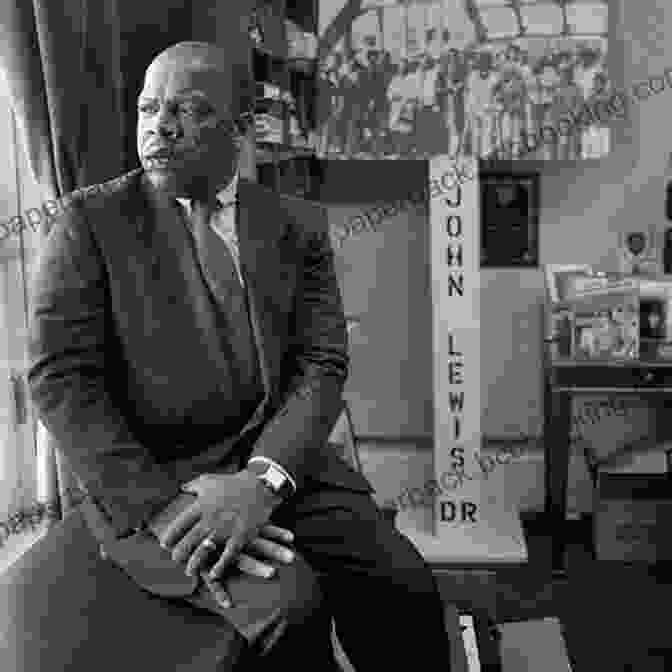John Lewis, a towering figure in the American Civil Rights Movement and a revered civil rights leader, embarked on a remarkable journey that left an enduring mark on the nation's conscience.
Born into a farming family in rural Alabama in 1940, Lewis's childhood was marked by the grinding poverty and racial segregation that defined the Jim Crow South. But even as a young boy, a burning fire for justice ignited within him.
5 out of 5
| Language | : | English |
| File size | : | 1282 KB |
| Text-to-Speech | : | Enabled |
| Enhanced typesetting | : | Enabled |
| Word Wise | : | Enabled |
| Print length | : | 103 pages |
| Lending | : | Enabled |
| Screen Reader | : | Supported |
At the tender age of 15, Lewis penned a letter to Martin Luther King Jr., expressing his admiration and desire to join the burgeoning movement for equality. King's response, encouraging Lewis to "get in the way" of injustice, became a guiding mantra for his lifelong activism.
From Student Activist to Freedom Rider
Lewis's involvement in the Civil Rights Movement began in earnest during his college years at the American Baptist Theological Seminary in Nashville, Tennessee. He joined the Nashville Student Movement, a group of young activists fighting for desegregation.
In 1961, Lewis played a pivotal role in the Freedom Rides, a series of nonviolent protests aimed at desegregating interstate bus travel. As one of the original Freedom Riders, he faced brutal violence and arrest, but his unwavering resolve only strengthened his commitment to the cause.
Leadership in the Student Nonviolent Coordinating Committee
Lewis's leadership qualities soon earned him a prominent role in the Student Nonviolent Coordinating Committee (SNCC),a student-led organization at the forefront of the Civil Rights Movement.
As SNCC's chairman from 1963 to 1966, Lewis spearheaded countless nonviolent protests, including the March on Washington for Jobs and Freedom, where he delivered an electrifying speech that challenged America to live up to its ideals of equality.
Lewis's fearless advocacy for voting rights led to his participation in the infamous Selma to Montgomery marches in 1965. On "Bloody Sunday," he was brutally beaten by Alabama state troopers while attempting to cross the Edmund Pettus Bridge, an event that shocked the nation and galvanized support for the movement.
From Activism to Congress
After the passage of the Civil Rights Act of 1964 and the Voting Rights Act of 1965, Lewis continued to work tirelessly for social justice. In 1986, he was elected to the United States House of Representatives, where he served for over 30 years.
As a congressman, Lewis remained a staunch advocate for civil rights, voting rights, healthcare, and economic justice. He was a vocal critic of racial discrimination, police brutality, and voter suppression.
Lewis's unwavering dedication to the pursuit of equality earned him the nickname "the Conscience of the Congress." He was widely respected by his colleagues, regardless of party affiliation, for his integrity and his ability to bridge partisan divides.
Legacy of a Civil Rights Icon
John Lewis passed away in 2020 at the age of 80, but his legacy continues to inspire generations of activists and civil rights advocates.
His life and work embody the indomitable spirit of the Civil Rights Movement and serve as a testament to the power of nonviolent resistance in the face of adversity.
Through his unwavering belief in the power of love and forgiveness, Lewis helped to create a more just and equitable America. His legacy will forever be etched in the annals of American history as a true civil rights icon and a tireless champion for equality.


























































































